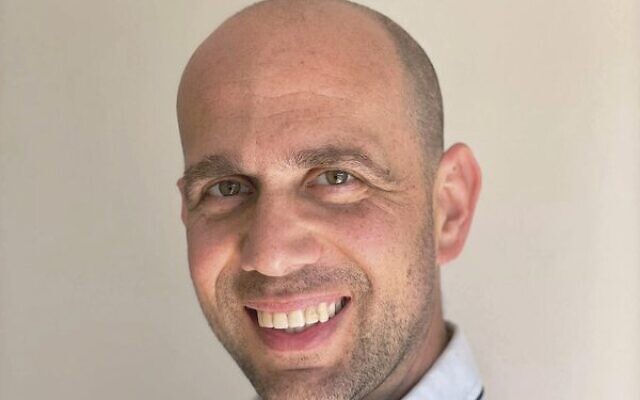Yoash Dvir takes reins of Technion Australia
"You might not see the results today, but you are putting money in something that will probably change the world."
HOW does one stand out in a crowded field?
That’s one issue Yoash Dvir has been tackling since his recent appointment as CEO of Technion Australia, the local organisation supporting Technion – Israel Institute of Technology.
Although the Haifa-based university has consistently ranked in global top 100 lists, and boasts three Nobel-winning discoveries by its researchers, Dvir knows pitching to donors can be a challenge.
As a not-for-profit, Technion Australia is “not alone in the fundraising business, and each person has their variety of preferences of what, where to invest”, he said.
Dvir, who has experience as a lawyer, entrepreneur and business development consultant, said, “We need to show the investor what’s in it for them.
“When you donate to Technion you invest … in the future of the whole world.”
Technion projects cited by Dvir include physics experiments to be performed by an Israeli astronaut aboard the ISS; research on ending world hunger; and technology that has allowed for remote surgery in rural Australia, where medical services can be scarce.
Dvir said the surgery was done “with no people, just robots … and a surgeon … here in Sydney”.
Other projects include removing “forever chemical” PFAS from drinking water; stopping metastasis-causing side effects of chemotherapy; and fixing the effects of female under-representation in clinical trial data.
Speaking for himself, Dvir was humble.
“I think most people in Technion are much smarter than me. I could not get accepted,” he said.
Beyond garnering direct support, Dvir aims to grow the Technion’s academic presence in Australia by expanding its research collaborations with leading local universities, and is in “talks” with several of them.
He also aims to grow Technion Australia as a welcoming society, especially for its 400 graduates living in Australia.
He hopes to kick off its social calendar with alumni gatherings – online if need be – and a Pi Day celebration next month, if pandemic conditions allow.
Overall, Dvir keeps his focus on the long term.
“You might not see the results today, but you are putting money in something that will probably change the world. You can say, ‘You know what? I contribute to that’ … and your kids and your grandkids will benefit from that,” he said.


comments